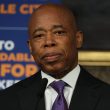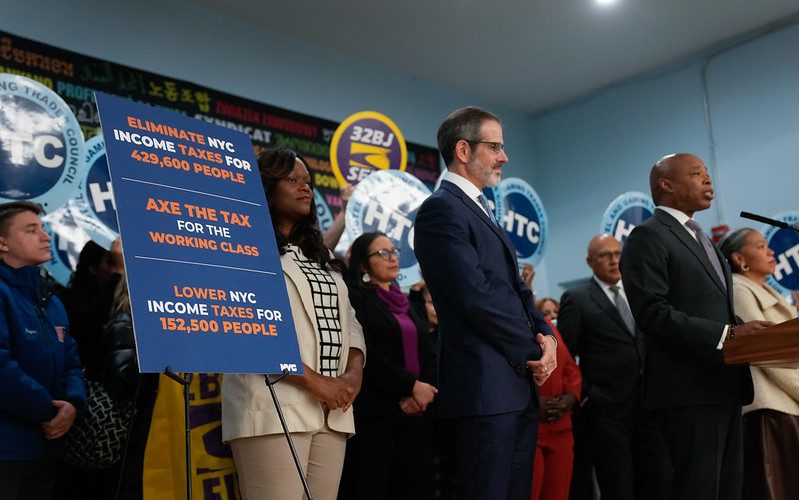Mayor Adams this week moved to push through a tax cut for the city’s lowest earners, which would eliminate or reduce city income taxes for more than a half million people, saving each household an average of some $350 annually. The effort would have to be signed off on by the state Legislature and Gov. Hochul.
All in all, $350 is not going to be a life-changing sum for most families, though certainly not nothing. We can’t imagine that Albany legislators will raise too many hackles about moving ahead with it if it’s a priority for both the mayor and the City Council, though we certainly wouldn’t put it past them. This is the legislative body that had to be cajoled over years into allowing the city to lower its speed limit from 25 to 20 miles per hour and holds mayoral control of schools hostage every year.
We thank state Sen. Leroy Comrie of Queens and Brooklyn Assemblywoman Rodneyse Bichotte Hermelyn, who will be sponsoring the bill when the Legislature convenes for the new session next month and we expect it to pass. But the very fact that New York City has to go to Albany, hat in hand, to ask permission to alter a city tax levied on city residents with the funds going into the city treasury is maddening.
Why must state senators from Buffalo and assemblymembers from Long Island be passing judgment on how we want to govern ourselves? We have an elected government in City Hall for that, but are still treated like children, requiring approval from the moms and the dads in the state Capitol.
As far as the impact on the city’s own budget, it’s a rounding error at an estimated $63 million, not really a revenue loss that’s going to be blowing any holes in the available dollars, especially as both it and tax receipts over all have expanded recently.
The beneficiaries of ending the income tax will be taxpayers with children and other dependents, targeting the money to those who need it most, defined as those living at or below 150% of the federal poverty line. That translates for a single adult with one kid as $31,503 and for two adults with two children to $46,350. As part of the proposal, the local income tax for filers just above those thresholds would not be eliminated, but be reduced.
It builds on the idea of a progressive tax, that those who can afford to pay more the most, like Mike Bloomberg and other top earners, have the highest rates and those who have the least, pay the least, or in this case, pay zero.
This small measure, which Adams is calling “axe the tax for the working class,” is at least an acknowledgement that costs, always on the minds of New Yorkers, has come to feel like an inescapable, everyday issue for large swaths of the city.
As we saw in the presidential campaign, affordability matters to the voting public. Soon will be campaign season for local offices, from Council to mayor, and we welcome a robust exchange of ideas grounded in the idea of lowering the most significant costs for a population that has felt endlessly squeezed.
But first things first, and Albany must pass this tax break early in their new session.








